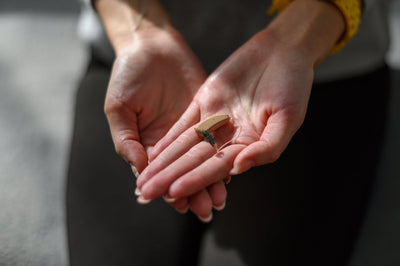Do Hearing Aids Help Tinnitus?
Tinnitus affects around 10% of the population. It is a chronic issue for some, while others experience it for a few minutes a year. This is a condition frequently linked to or commonly characterized by hearing loss.
Fortunately, while hearing loss is prevalent and irreversible, many people can seek the help of hearing aids. Read on to discover more about tinnitus and understand how the function of hearing aids could help you in the long run.
The Causes of Tinnitus
Not all causes of tinnitus are well understood. Tinnitus is caused by anything that causes hearing loss.
Tinnitus first damages the part of your brain that sends signals to the ears. With too much noise, hearing loss reduces brain input. Hearing neurons in the brain then misfire in an attempt to retrieve lost input.
Tinnitus is the outcome, which is a phantom sound in the brain rather than the ears.
The Function of Hearing Aids
Hearing aids and better hearing can help with tinnitus for a variety of reasons. These tools help with auditory circuits in the brain that are stimulated by hearing aids.
Hearing loss induces hyperactivity in the brain, which activates nerve cells in the dorsal cochlear nucleus, which may perceive the activity as sound. Hearing aids can help regulate tinnitus because they restore some of the brain's missing stimulus.
Hearing Aids Improve the Quality of Ambient Noises
Background noises can be amplified with hearing aids. By increasing these noises, hearing aids can improve the distinction in the brain between tinnitus and background sounds like a mild breeze or rustling leaves.
Hearing Aids Reduce Anxiety
Tinnitus is exacerbated by stress. Stress can be caused by employment, finances, interpersonal relationships, and other reasons. It is extremely stressful to be unable to hear or converse.
Hearing aids can help reduce the tension that comes with hearing loss. Simple chores like eating breakfast at a café or buying postage stamps no longer feel like a minefield.
Hearing Aids Are Beneficial
Many hearing aids have white-noise masking capabilities and muffle tinnitus through the tinnitus sound generator (TSG). They are typically intended to assist patients in coping with tinnitus by allowing them to gradually acclimate to it.
Aside from TSG and masking, many hearing aids can easily link to smartphones and send sounds from calming or white noise apps.
Other Treatments for Tinnitus
Tinnitus is incurable. Thankfully, with hearing aids, this can be concealed with other sounds that prove to be beneficial.
With hearing aids, tinnitus is not entirely eradicated. This is why other treatments like cognitive behavior therapy (CBT) and tinnitus retraining therapy (TRT) are best for helping people cope with hearing difficulties. These treatments aid in better relaxation, visualization, and meditation for ignoring tinnitus sounds.
Because no two people react the same way to tinnitus, it is vital to try a number of treatments.
Conclusion
It’s worth noting that the best way to diagnose and prevent further hearing loss is to have your hearing tested. Hearing tests can rule out medical reasons for tinnitus (such as medications that cause tinnitus as a side effect). Such tests can help patients with relief.
Thus, always have your hearing checked, especially if you just have tinnitus in one ear. It is straightforward to implement and can aid in the elimination of medical causes of tinnitus. Tinnitus may be relieved with hearing aids if your hearing test reveals hearing loss.
HearGlow offers affordable tools and hearing aid accessories that fit your lifestyle and your needs. Browse and shop our products today!
Related Articles



